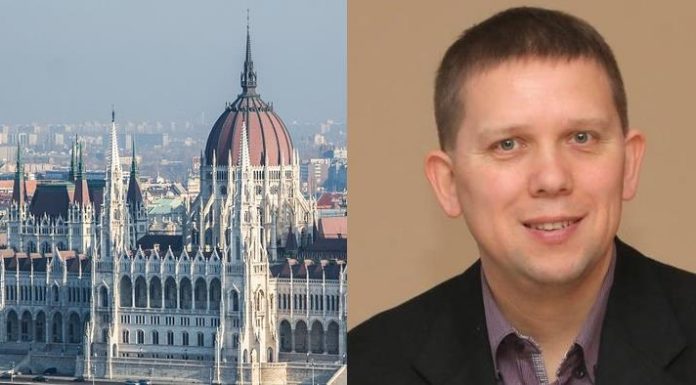
During the 2024 European Parliament elections, green parties suffered heavy losses and since then, they have lost even more support in the polls. However, they still enjoy a lot of support in the European Commission. This is clear when looking at some recent EU proposals.
A new Commission proposal sets out yet another new target for reducing CO2 emissions. These are now to be reduced by 90 per cent by 2040 compared to 1990 levels. The Commission is presenting this proposal despite the fact that only six European governments fully support the idea.
The EU’s climate approach serves as a cautionary tale
The EU’s zealous push for a 90 % emissions cut by 2040 is economically self‑sabotaging, driving up energy costs and pushing key industries to high‑carbon nations like China.
From my latest newsletter:… pic.twitter.com/iCpvdj2H1b
— Bjorn Lomborg (@BjornLomborg) July 24, 2025
Recently, it was also leaked that the eurocrats are working on a plan to ban car rental companies and large enterprises from purchasing non-electric vehicles from 2030 onwards. This is quite mind-boggling when considering the problematic situation in the European car assembly sector. Over the past year, there has been strong criticism of the European policy to phase out combustion engines by 2035, both from within the industry and from French and German politicians, including, of course, from policymakers who previously supported it. This led to a slight watering down of some aspects of it last spring. However, this latest initiative amounts to a de facto acceleration of the European plan to phase out combustion engines.
If consumers prefer electric vehicles, and if Chinese manufacturers are able to make them better, for example through better access to certain raw materials, then it is a natural process that European car manufacturers will struggle. However, when this is due to a ban specifically targeting products in which European industry excels – cars with combustion engines – that is revolting.
Instead of u-turning, the EU Commission is doubling down on its failed 2035 Electric Vehicle mandate
"The EU Commission is working on a plan to prohibit car-rental firms & large corporations from buying non-electric vehicles for their fleets from 2030"https://t.co/h7Ek4DRuqw
— Pieter Cleppe (@pietercleppe) July 21, 2025
Climate taxation
The problems in the automotive sector are not solely due to the 2035 ban. According to Stellantis, the manufacturer of brands such as Fiat and Peugeot, the current European CO2 emission rules are causing production costs for the European automotive industry to be 40% higher.
With the European Emissions Trading System (ETS), the EU is effectively imposing a carbon tax, which has major consequences, not only for car assembly. The chemical industry, which forms the basis for all other activities, is particularly affected by this, and it is facing a very serious competitive disadvantage. The cost of ETS even exceeds the total price of natural gas in the United States, where gas is four to five times cheaper. People like Jim Ratcliffe, founder of chemical giant Ineos, have sounded the alarm several times, but in practice, little or nothing is being done, despite continuous announcements of factory closures in the European chemical sector.
This month, the European Commission did come up with a support plan for the chemical industry, but in addition to economically damaging protectionism, with ‘priority for production in Europe’, the Eurocrats are simply committing to more of the same climate policy, such as ‘legislation to establish a market for circular energy, with access to clean energy based on hydrogen produced through nuclear energy’ and ‘a secondary market for recycling.’
Again, according to Ineos, the plan “has missed the point entirely. It’s too little, too late. While the US and China back their industries with real action, Europe drags its feet, and it’s costing us jobs, investment, and competitiveness. At our Cologne site alone, we’re hit with €240 million in extra costs every year just to operate, thanks to sky-high gas prices, expensive electricity, and soaring carbon charges. This isn’t a level playing field. More than 20 plants have already shut down in Europe. Without urgent action on energy and carbon costs, the chemical industry here won’t survive.”
Even centre-left politicians such as Belgian MEP Wouter Beke (CD&V), who themselves bear a large part of the responsibility for the current debacle, seem to be finally seeing the light. He states in De Tijd: ‘Europe seems to be on track to meet its climate targets for 2030, but cynically enough, this is due to the standstill in production at energy-intensive companies. This is disastrous for our industrial fabric.’
The EU’s Chemical Industry Action Plan has missed the point entirely.
It’s too little, too late. While the US and China back their industries with real action, Europe drags its feet, and it's costing us jobs, investment, and competitiveness.
At our Cologne site alone, we’re hit… pic.twitter.com/jwl1HsZgCn
— INEOS (@INEOS) July 16, 2025
Nevertheless, no major politician is calling for the scrapping of the European ETS carbon taxation scheme, despite the fact that CO2 emissions in the US, where no such system exists, have fallen more sharply per capita than in the EU since 2005, when the ETS system was introduced. On the contrary, from 2027 onwards, the system will be extended to consumers, who, via ETS2, will have to pay an estimated 25 per cent more to drive a diesel or petrol car. Average households will also have to pay an extra 700 euros per year to heat their homes with gas. This is a particularly aggressive attack on the purchasing power of the population, and yet there is hardly any political uproar about it.
Also the EU’s new protectionist climate tariff, called “Carbon Border Adjustment Mechanism (CBAM)», to compensate for the fact that trading partners refuse to take over EU climate policies sufficiently, is still on track, regardless of the damage to European importers and consumers.
These MEPs supported subjecting imports to a new EU climate tariff, called “Carbon Border Adjustment Mechanism (CBAM)», to compensate for EU climate policies burdening European industry, thereby once again hitting European consumers: pic.twitter.com/JN6vLNHo8T
— Pieter Cleppe (@pietercleppe) April 18, 2023
Time for change
Last month, Libera, a Belgian think tank to which I belong, awarded the ‘Prize for Freedom’ to leading industrialist Guido Dumarey, one of the largest private investors in France. He rightly stated during the award ceremony: “Green madness is making our people poor. When will people take to the streets? How far can the state go in telling us what we have to put up with?‘ Dumarey is a veteran of the automotive industry and a leading expert in the field. On electric cars, something that is supposed to be ’the future‘ according to the European political class, he had this to say: ’If you really want to drive electric, take the train.”
However, nothing seems to be able to dissuade the Eurocrats from their chosen path, except perhaps the trade war started by US President Donald Trump. Trump succeeded not only in getting the European Commission to withdraw a proposal for a tax on digital services, which would have been damaging to American big tech companies, but also to European consumers. The Commission has also conceded to exempt imports of American products subject to the new European anti-deforestation directive in practice by classifying them as ‘low risk’.
The directive is one of many green measures that came into being during Ursula von der Leyen’s first term as Commission President. It imposes all kinds of bureaucratic obligations on trading partners to export products such as cocoa, coffee, soy, palm oil and beef to the EU in order to combat deforestation. The measure led not only to a row with the US. South-East Asian palm oil producers, such as Malaysia and Indonesia, also protested.
They now consider it unfair that their imports are classified as “standard risk”, as opposed to the US “low risk” classification, especially given that the problem of deforestation in countries such as Malaysia has recently improved significantly, with a 13 per cent reduction last year. They also think it is hypocritical that EU member states are automatically classified as “low risk”, despite major issues with deforestation existing in member states like Sweden and Finland.
It is encouraging, at least, that 18 of the 27 EU Member States are now again demanding changes to this directive, which is due to come into force in January. According to Reuters, the reason is that some producers simply cannot be expected to meet the conditions, which would also put them at a competitive disadvantage. In other words, the European Union pushed through legislation that is simply unenforceable. Since the directive also applies to exports, governments fear that companies will simply leave the EU as a result.
Here and there, adjustments are being made to EU green policies, but the direction of the European tanker remains the same. At the end of June, EU Commission spokeswoman Paula Pinho stated unequivocally: ‘We’re standing firm by the European Green Deal.’ However, a slightly slower deindustrialisation should not be an objective. This process must simply be stopped. Solutions for protecting the environment can only be achieved through innovation, not through central planning. One cannot build an ecological paradise on an economic graveyard.
"Thus far, the Green Deal’s core — a net-zero drive for 2050 and the laws to deliver it — has not changed. And that’s von der Leyen’s strategy." https://t.co/c75OeTGRCa pic.twitter.com/18DcdM5c2k
— Pieter Cleppe (@pietercleppe) June 26, 2025












